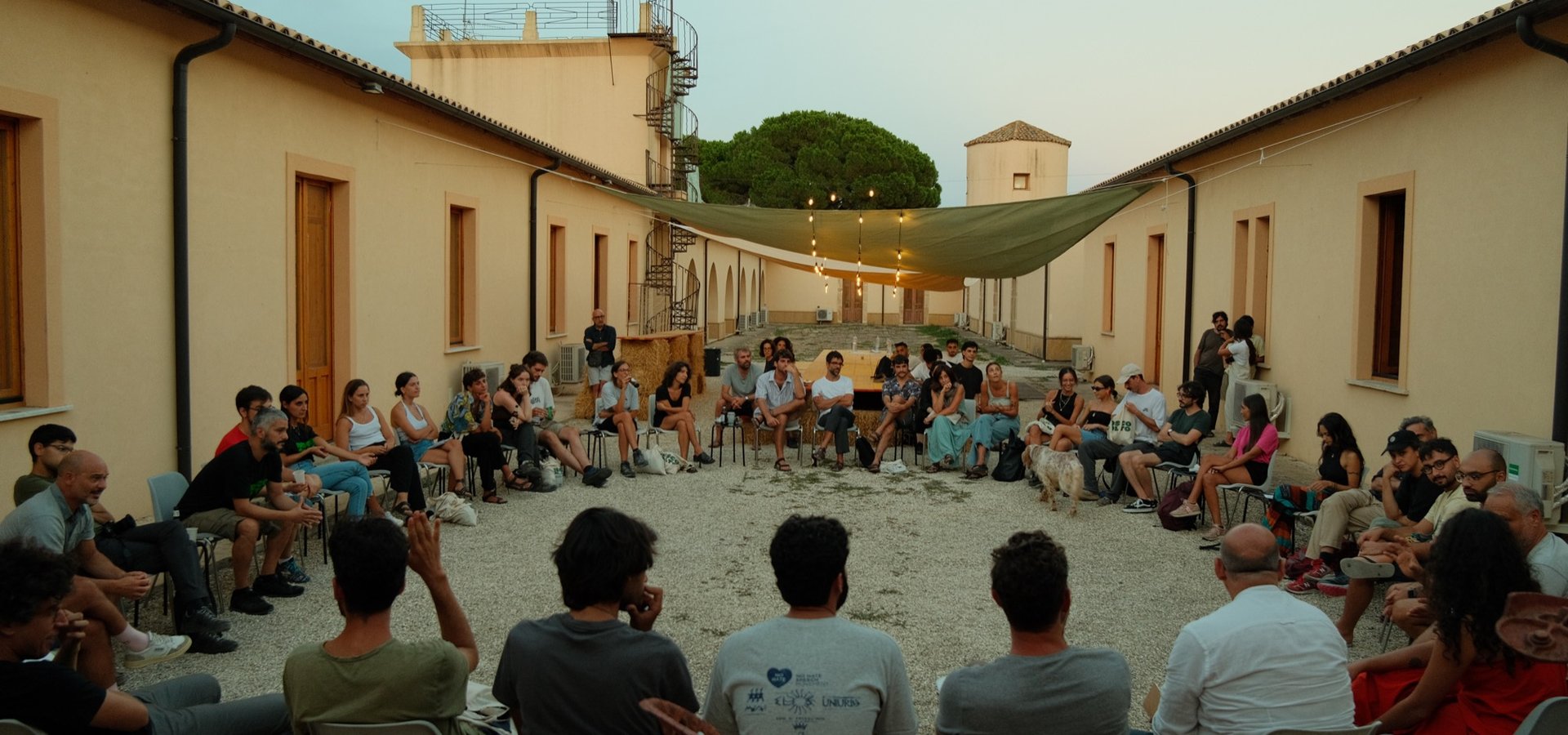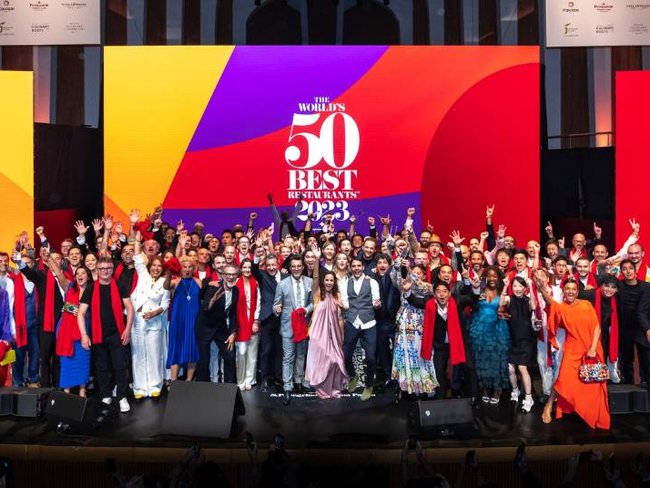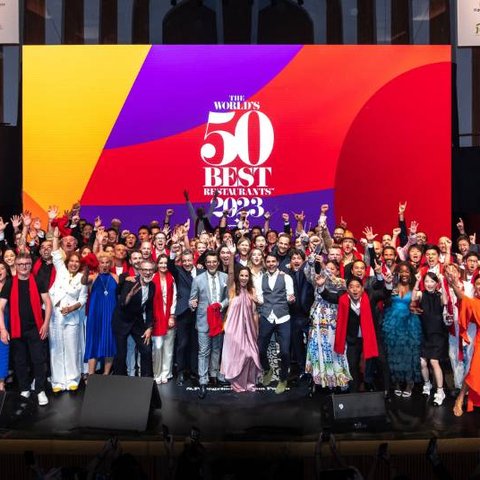Since the Bosco Colto project took root in Caltagirone, its surrounding inland area has become a fertile ground for experimentation and collaboration. Launched in 2022 by the Makramè APS group, the project has always aimed at territorial recovery through ecological practices, garden culture, and regeneration via self-building activities.
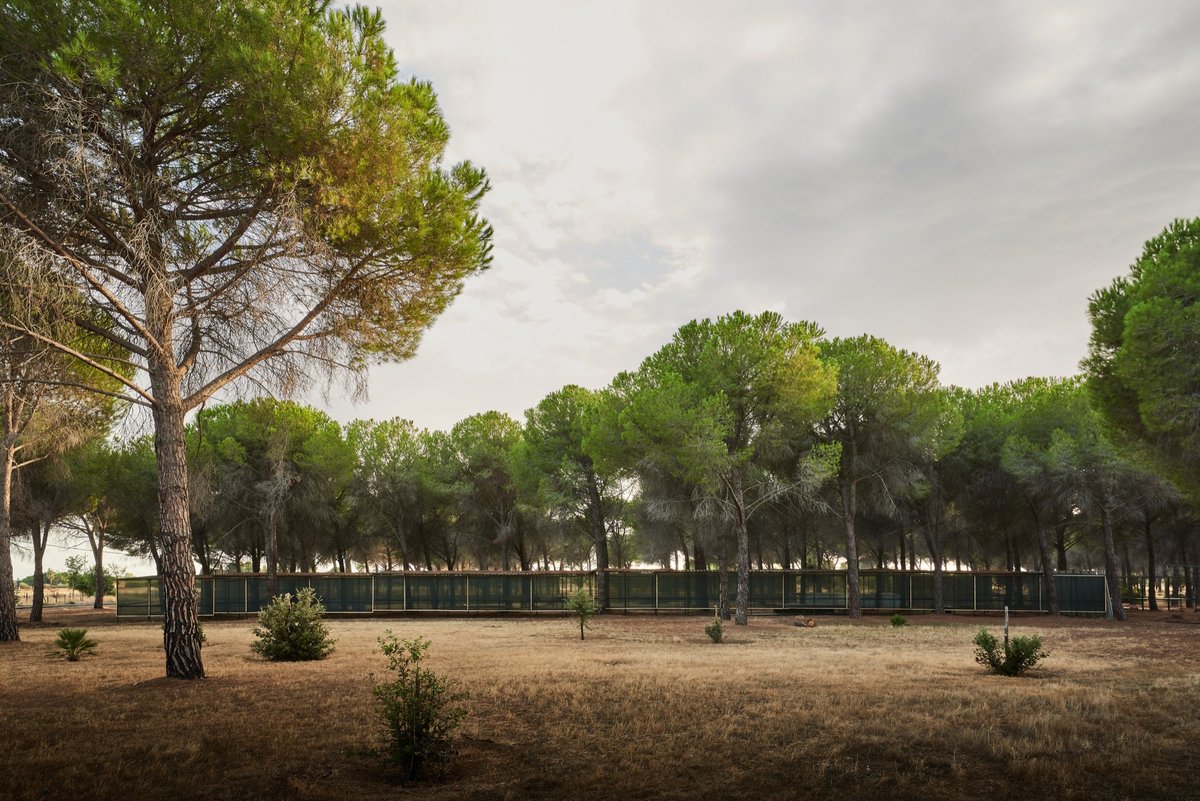
We are at the Granicoltura Experimental Station in Borgo Santo Pietro, a small agricultural hub that still thrives amidst centuries-old cork oak groves and 1930s architecture. In local culture, cork oak forests have always held sacred significance, but they also symbolized work, economy, knowledge, and community. Here, cultivation takes on a unique meaning, one that has always existed but that we have gradually forgotten. At Bosco Colto, cultivation means care: care for endangered ancient grain varieties, for olive groves and nearly forgotten lands, and for one's place and origins. But it’s not just the land and its produce that are nurtured—relationships, exchanges, and knowledge are cultivated too.
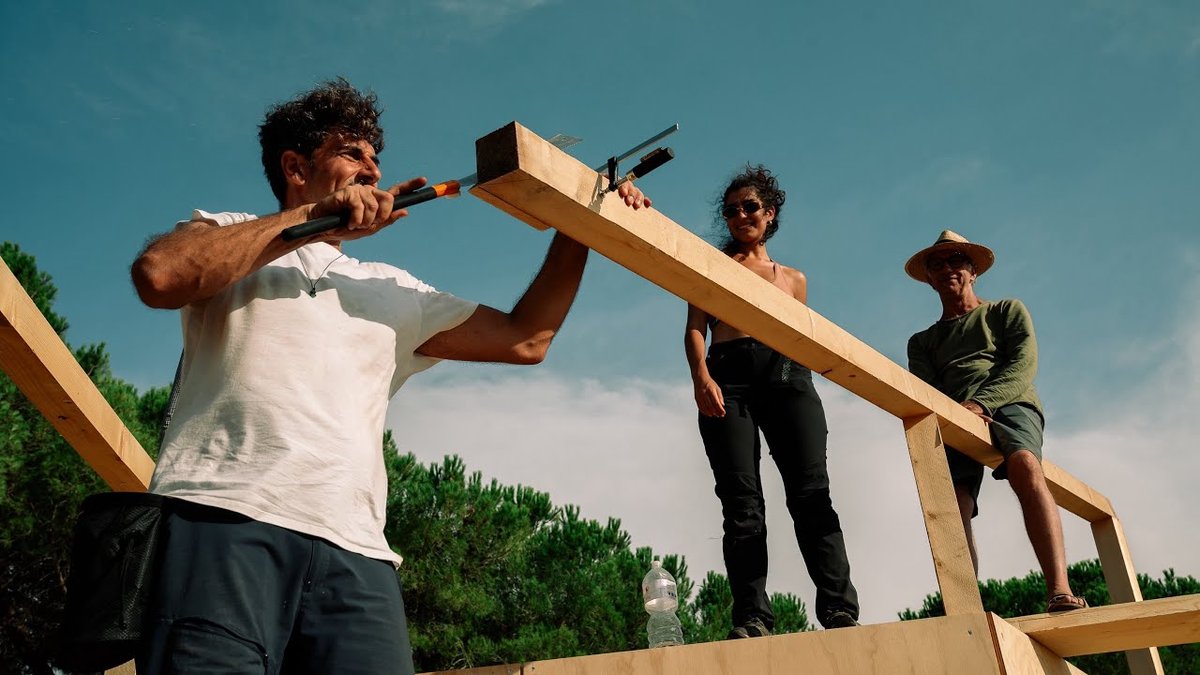
That’s why the Bosco Colto Campus was born early on, in the form of a Summer School, with a specific theme each year to explore and learn from the forests while reviving primary resources, in collaboration with various socio-territorial organizations.
A forest of many faces
Every year, thanks to the Summer School, Bosco Colto welcomes numerous faces, each specializing in a particular practice or field. While previous seasons focused on the creation of dynamic, evolving environments, the 2024 edition embraced another aspect of creation: drawing, images, and imagination, alongside workshops in graphic design and writing.
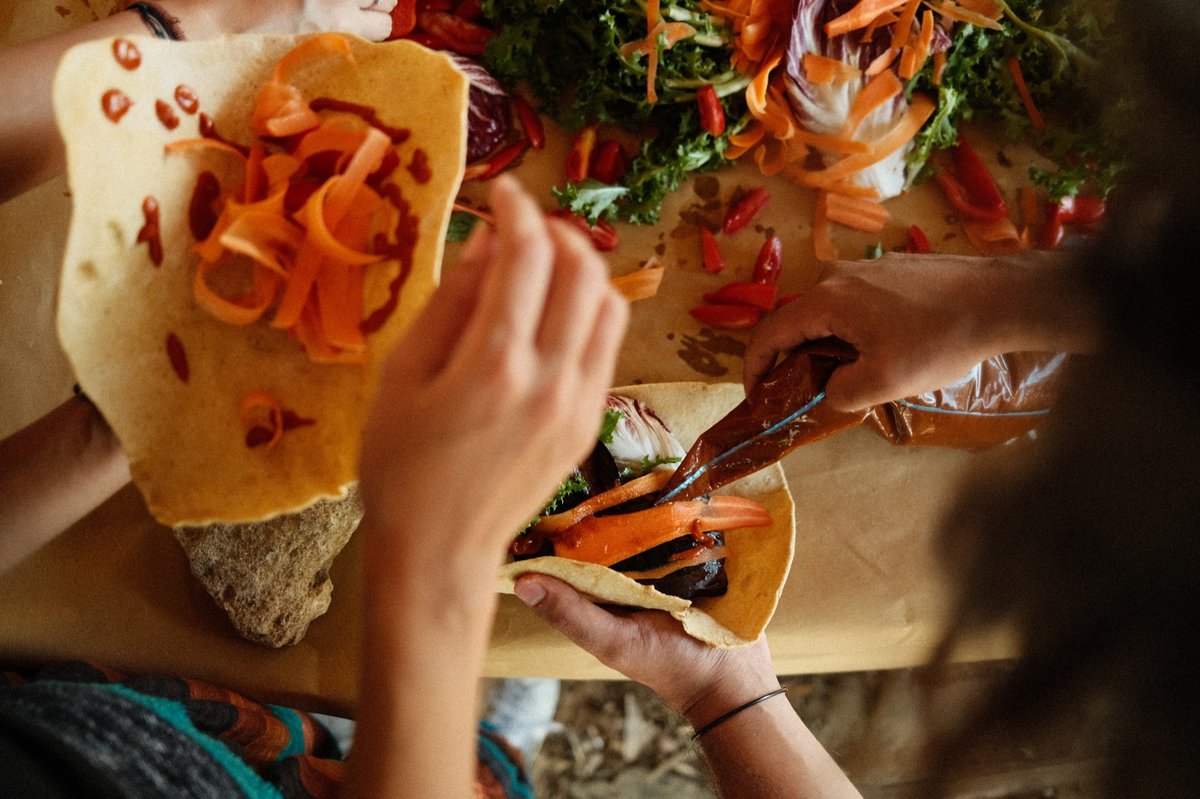
Once again, food plays a central role, particularly through the culinary experiments of Marco Falcone, a young, independent chef who has been part of the Bosco Colto team since the beginning. Marco uses ancient grain varieties grown on their land, along with ingredients from his own garden. Through the Nutrimenti project, even mealtime becomes a practical moment to regenerate and experiment with sharing and conviviality.
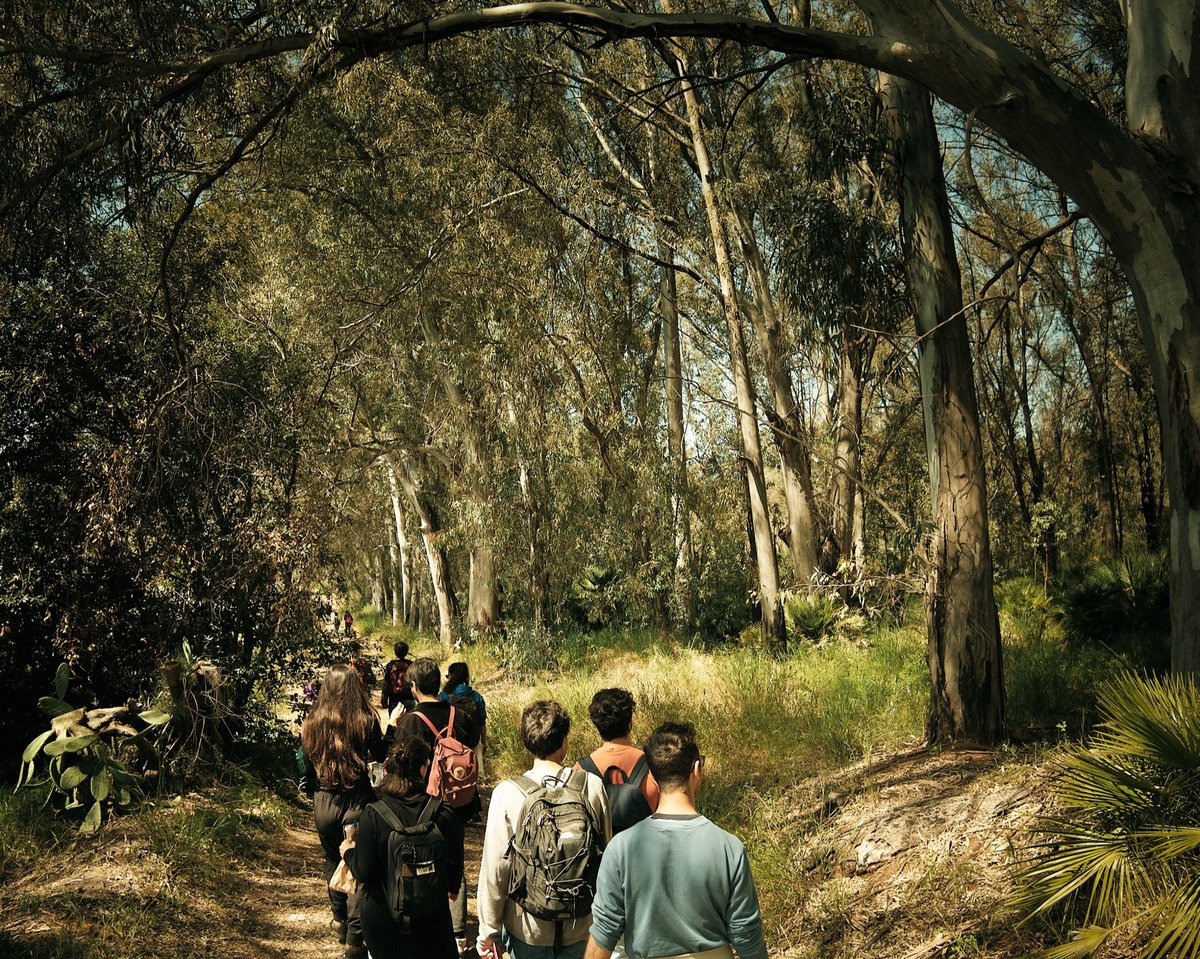
Just as the forest symbolizes coexistence and multispecies alliances, we too should focus on these aspects, embracing an ecological vision of the relationship between humans and nature. A vision where the wild coexists with the domestic, and nature with culture. Imagining the city as a vast forest, where communities coexist and represent one another.
Altri articoli
-
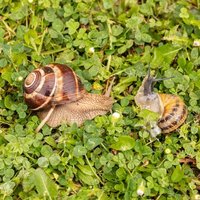 GeniusL’innovazione tecnologica al servizio dell'elicicoltura: la storia di Tenuta Il Nibbiodi Redazione
GeniusL’innovazione tecnologica al servizio dell'elicicoltura: la storia di Tenuta Il Nibbiodi Redazione26 November 2024 -
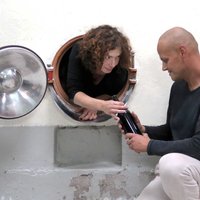 GeniusSyntropy, according to Giorgio Mercandellidi Isotta Rosboch
GeniusSyntropy, according to Giorgio Mercandellidi Isotta Rosboch11 November 2024 -
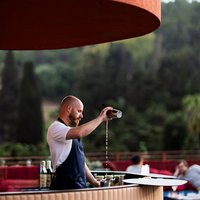 GeniusIl nuovo rooftop bar toscano che ha dedicato la sua intera drink list al Caravaggiodi Giacomo Iacobellis
GeniusIl nuovo rooftop bar toscano che ha dedicato la sua intera drink list al Caravaggiodi Giacomo Iacobellis30 October 2024

